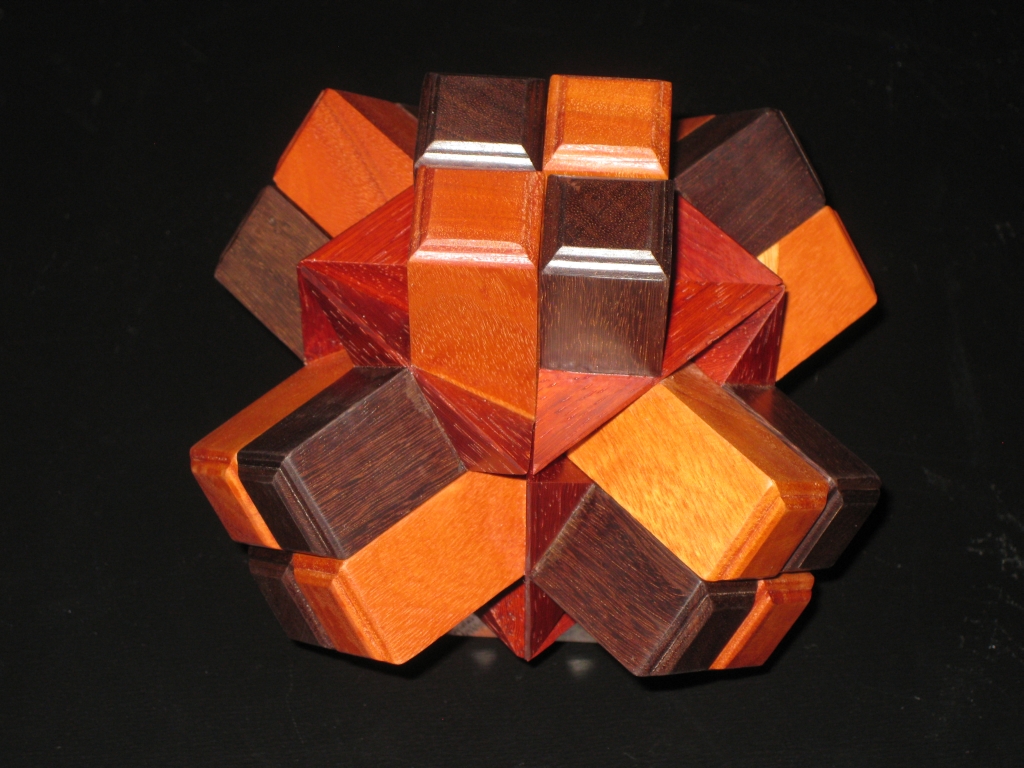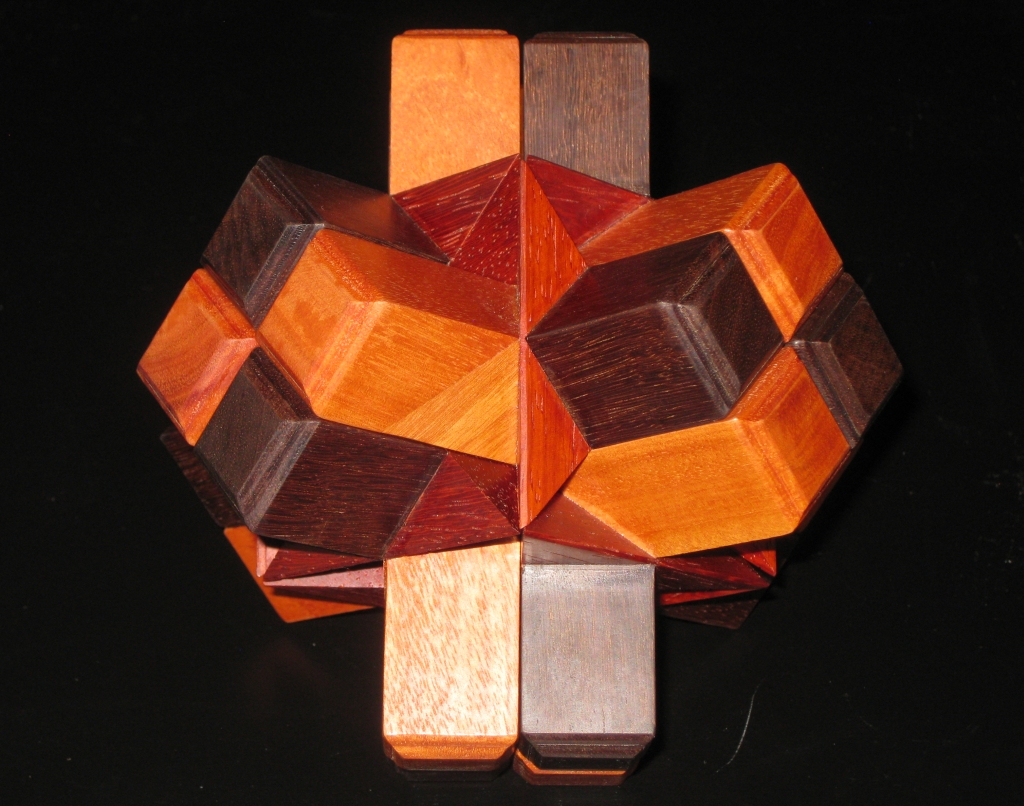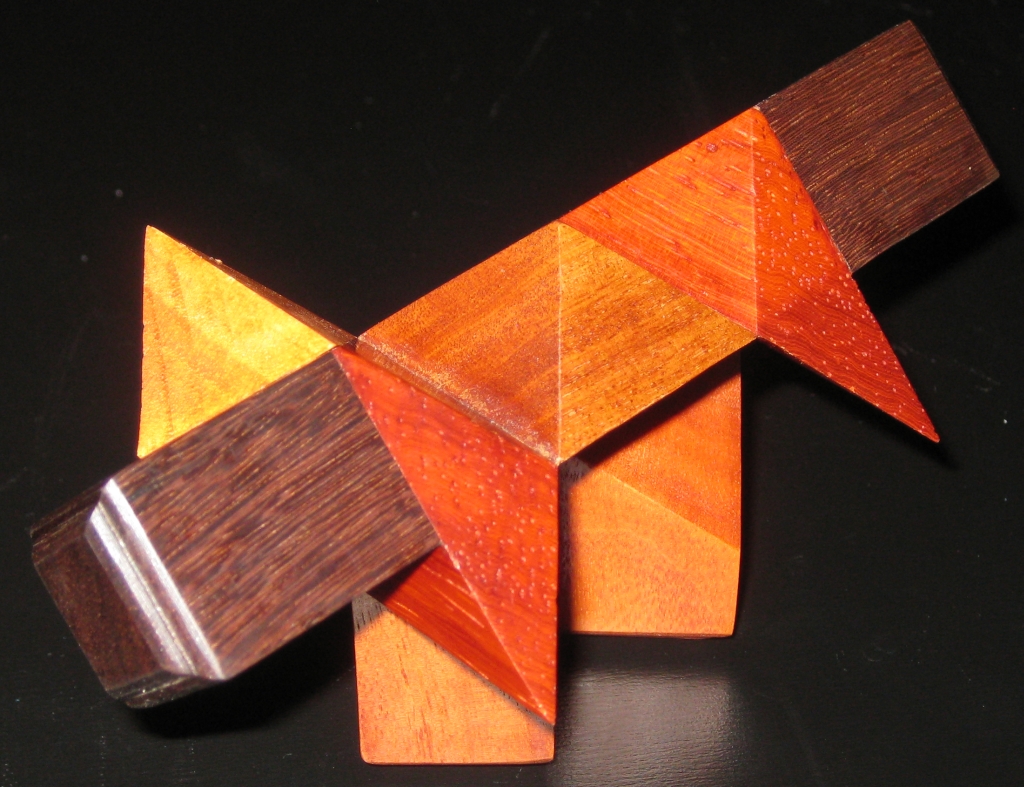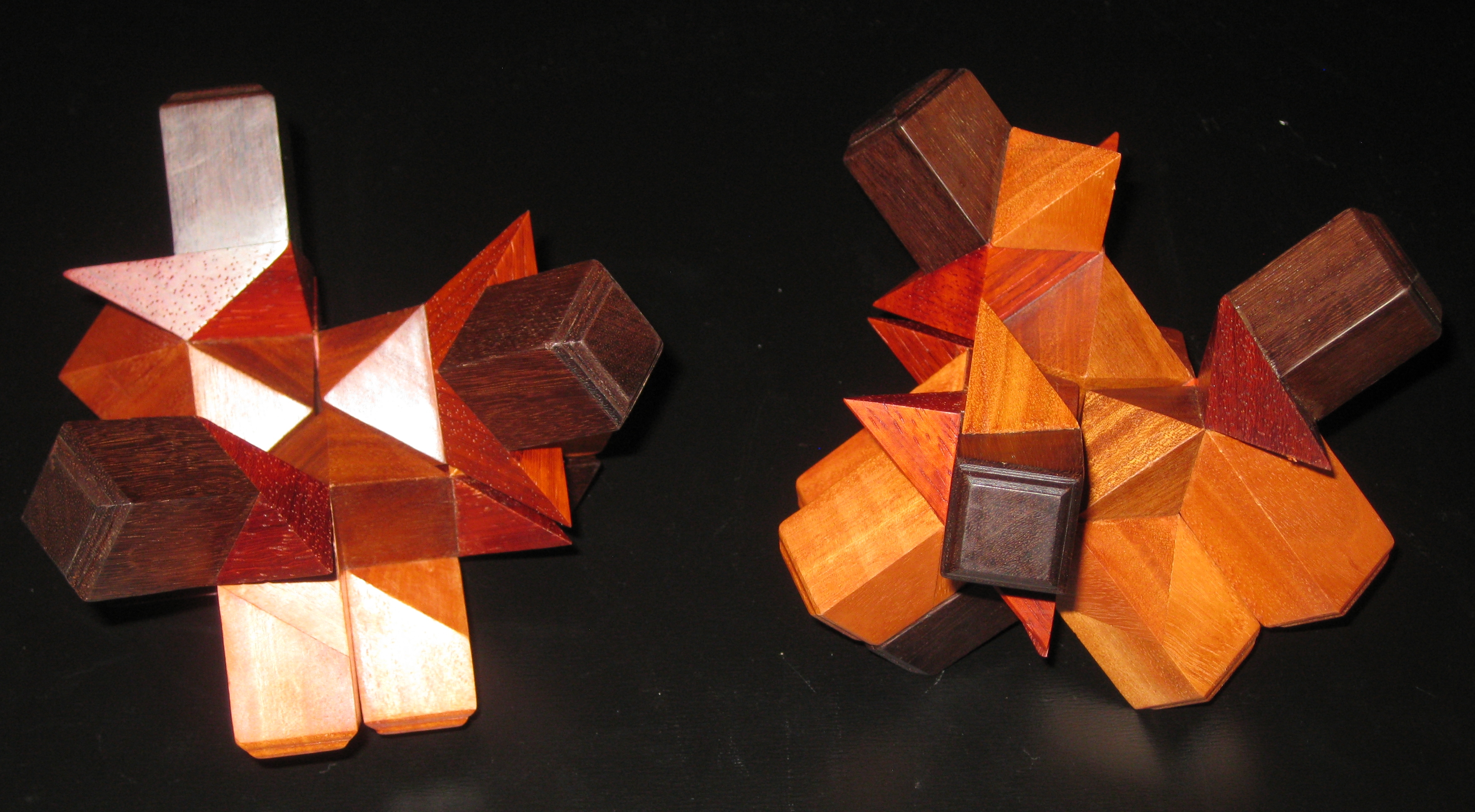I’ve reviewed a couple of Michael Toulouzas’ puzzles and each time I receive a new puzzle from him, I’m stunned by the look and quality of his work. The latest piece I received is “The Illusion Puzzle”, a six piece interlocking puzzle, that as Mike himself points out is not quite what it seems.
By the time I saw this puzzle, and decided that I wanted a copy, Mike had already sold through his initial run, but agreed to let me know when he had more available. It took a little time, but true to his word, he got in touch to offer me a copy. I didn’t hesitate, and before too long, the box arrived from Mike.
My initial exploration didn’t reveal much, and the puzzle seemed to be fairly well locked up. Of course with some careful finger placement, I found a little movement, and before I knew what had happened, I had six dissimilar pieces in my lap, and no idea where they went in relation to each other, and no real idea about the motion needed to put it back together. Guess I was going to have to truly solve this one with no hints, or reference from the solved puzzle.
Looking at the pieces, there’s some interesting pyramids which stick out and really do a great job of getting the way of solving the puzzle. That said, they also give you a clue as to how each piece must be oriented in the solution, since those blocks fit into cutouts in the other pieces. With some analysis, it’s possible to minimise the possible combinations and significantly reduce the permutations you need to try. Of course there’s only one way that the pieces will come together, and I had many attempts where I thought I had the orientation correct to be thwarted by one of those pyramids stopping the pieces from coming together.
Despite the puzzle exploding when I took it apart, this works very similar to a Sliding Star puzzle, and two halves glide together smoothly once the pieces are in the correct orientation, and you have the correct two sub assemblies created. I can now take it apart and put it back together without it exploding, and each time marvel at the design which created such a complicated set of interactions in what looks like a simple puzzle.
If you like this type of interlocking polyhedral puzzle, I highly recommend The Illusion, or any of Mike’s work, if you can get a copy.



